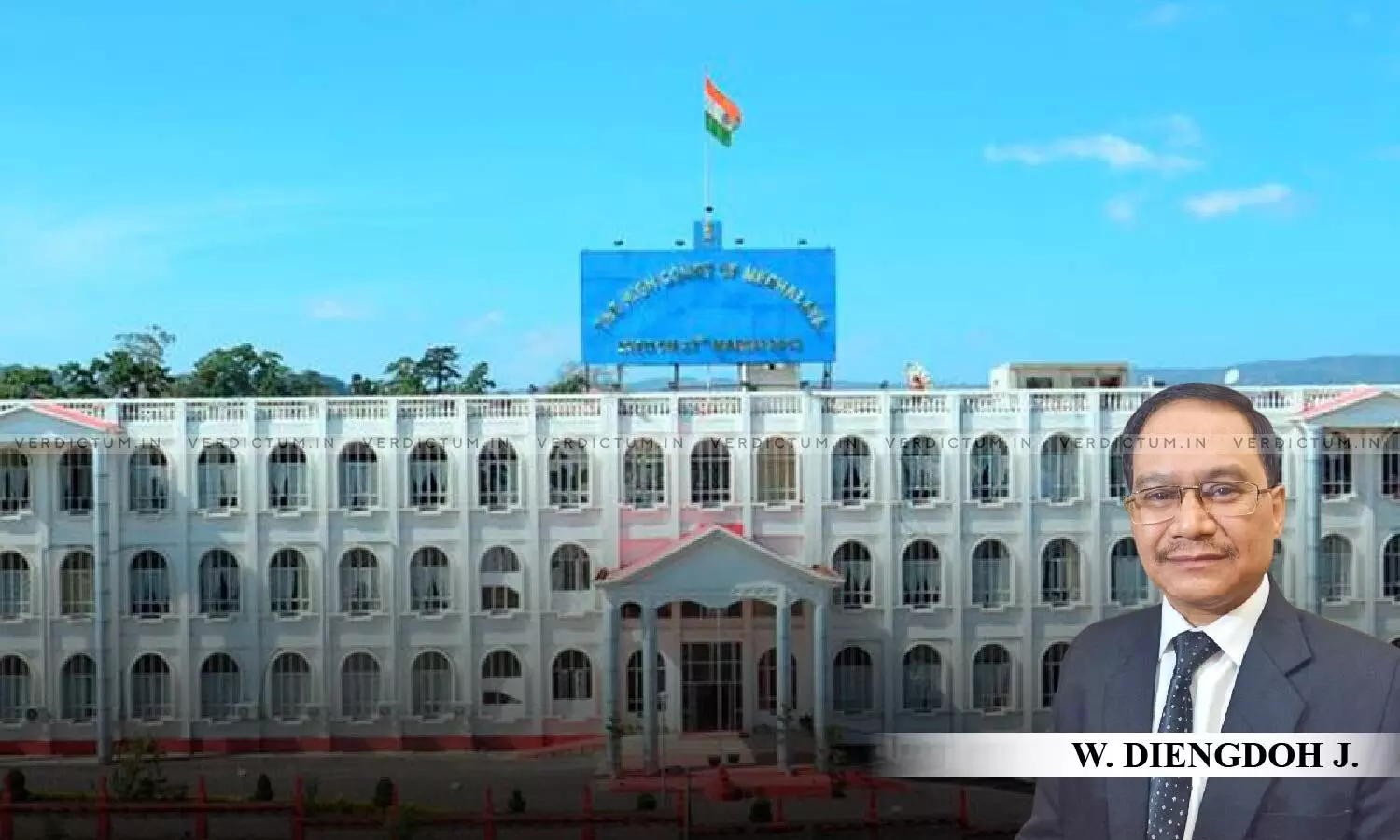
GHADC Must Follow Meghalaya Services Rules For Disciplinary Inquiries: Meghalaya High Court
 |
|The Meghalaya High Court has ruled that the termination of Senora Johny Arengh from the Garo Hills Autonomous District Council (GHADC) was unlawful, citing a violation of natural justice due to the lack of a formal inquiry.
The Bench of Justice W. Diengdoh ordered the reinstatement of Arengh, along with all financial benefits, after finding that the GHADC failed to follow proper disciplinary procedures.
"To say that the GHADC is not required to follow the accepted norm of institution of an enquiry to examine a case of misdemeanor of an employee, the adopting of the Meghalaya Services (Discipline & Appeal) Rules, 2011 should not have been resorted to. It may be pointed out that as per Rule 9 of the said Rules of 2011, the procedure of how an inquiry is to be conducted," the Court said.
Senora Johny Arengh, a Lower Divisional Assistant at GHADC and President of the Non-Gazetted Employee Association (NGEA), had been involved in a protest on July 22, 2021, during the COVID-19 lockdown. The protest, held at the GHADC office, allegedly disrupted operations. The GHADC issued a show-cause notice to Arengh, accusing him of organizing the protest and making defamatory statements against the administration. Arengh denied the allegations in his response, claiming his actions were lawful in his capacity as NGEA President.
Despite his defense, the GHADC terminated Arengh’s employment on August 6, 2021, citing an unsatisfactory response to the show-cause notice. Arengh challenged the termination, noting that seven other employees involved in the protest were merely suspended and later reinstated, arguing that this differential treatment was arbitrary and violated his right to equal treatment.
The Single-Judge found that the GHADC had violated its own rules by failing to conduct a formal inquiry before dismissing Arengh. The Court pointed out that the GHADC had adopted the Meghalaya Services (Discipline & Appeal) Rules, 2011, which require a formal inquiry before disciplinary actions such as termination.
The Court ruled that the issuance of a show-cause notice did not satisfy the procedural requirements for termination. "It is obvious that the said procedure as prescribed in Rule 9 (supra) has not been carried out in the case of the petitioner. Therefore, his termination from service has not only violated the related Rule 9 but has also demonstrated that the principle of natural justice has not been followed in his case," the Court said.
The Court also highlighted the arbitrary treatment of Arengh compared to the other employees, as no valid reason was provided for his termination while others were reinstated. "On an overall analysis of the case of the parties, this Court is convinced that the impugned order of termination has been passed arbitrarily and is therefore illegal. The same is, therefore, liable to be quashed which is done so herewith," it said.
The Court emphasized that even though Arengh’s employment was temporary, he was still entitled to due process and procedural fairness. Accordingly, the Court ordered, "The prayer of the petitioner in this regard is allowed; the said order of termination dated 06.08.2021 is hereby set aside and quashed, and the respondent authorities are directed to reinstate the petitioner in service forthwith with all consequential financial benefits."
Cause Title: Shri. Senora Johny Arengh v. The Garo Hills Autonomous District & Ors. [Neutral Citation No. 2024:MLHC:920]
Appearance:-
Petitioner: Advocate P.T. Sangma
Respondent: Advocates S. Dey, N. Rajee
Click here to read/download the Judgment